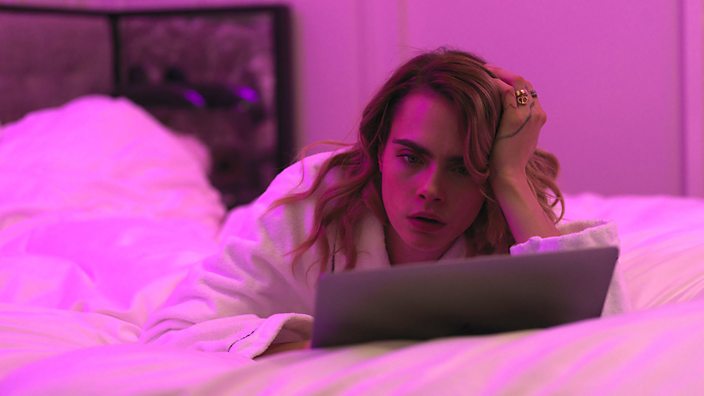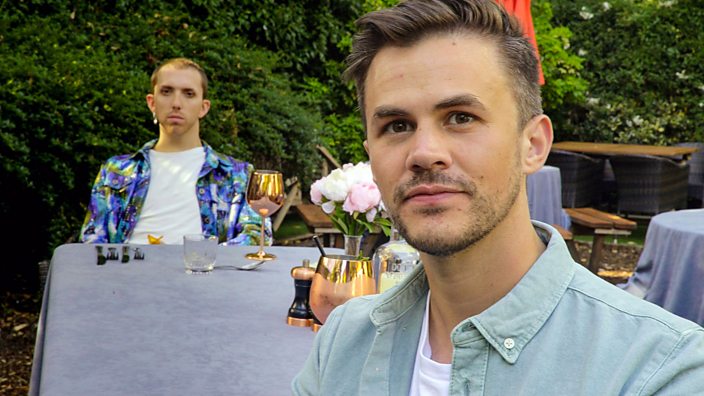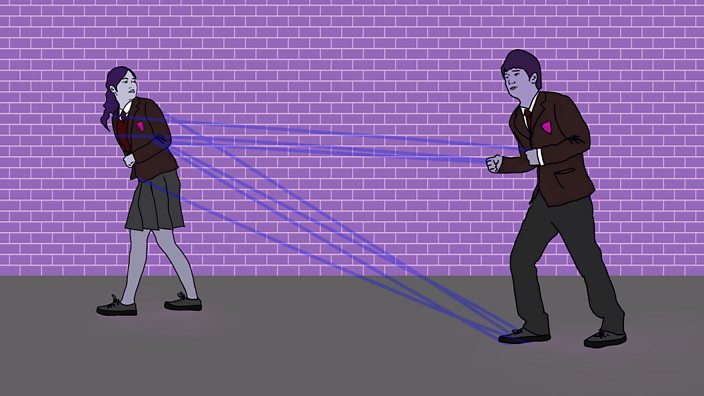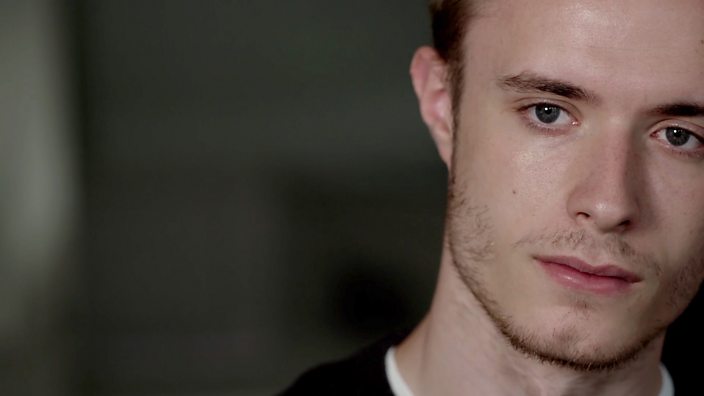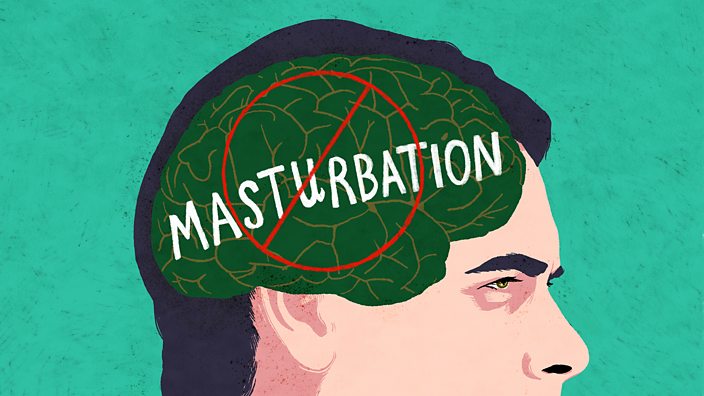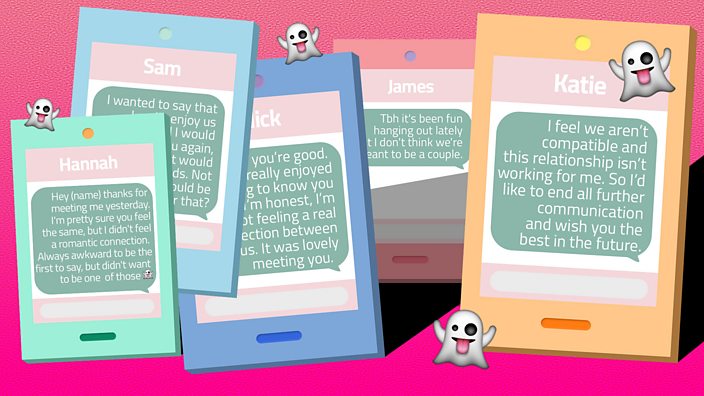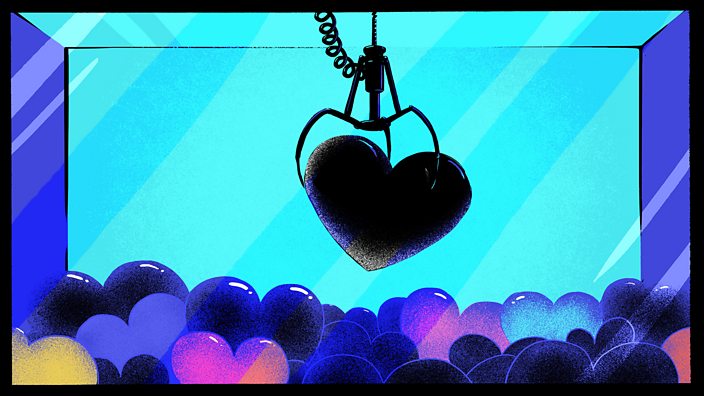 David Weller / BBC Three
David Weller / BBC Three“I have a thing for mixed-race girls…”
How modern dating encourages racial prejudice
We were lying in bed when I asked the question.
“Do you have a type?”
I felt him shift.
“Oh definitely. You’re so my type,” he answered, breezily.
I hoped his next words would describe some persistent attraction to short, loud girls who always had to be right. Or how he couldn’t resist women who had a strange, fervent passion for Robbie Williams and were so lazy at cooking they’d eaten the same meal - one chicken breast accompanied by mixed veg (mangetout and broccoli) - for 365 days (a fact that had horrified him when I first told him).
I wanted his type to be one of the many elements of my personality. Even the obnoxiousness. Anything to avoid the answer that was almost certainly coming.
He kissed the top of my head and smiled.
“I love mixed-race girls.”
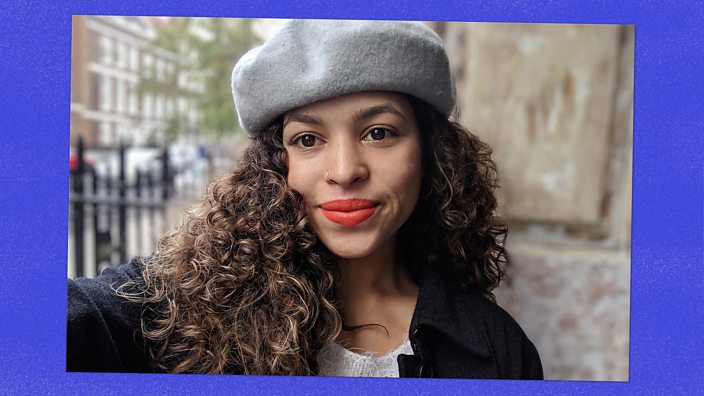 Moya Lothian-McLean
Moya Lothian-McLeanThere are many things we allow in the dating sphere that aren’t acceptable in the rest of our day-to-day lives. Being ghosted. Not splitting a bill. Listening to someone bore on about Brexit out of sheer politeness when, in any other setting, you’d have long ago made your excuses and fled. When it comes to trying to find love, though, we’re incredibly forgiving. To the point where we can even find ourselves glossing over or excusing racial prejudice that would be balked at anywhere else.
It’s not like racism in dating is a new problem. I've even written about it before in my day job for Stylist magazine. But perhaps we have the rise of online dating to blame – or thank – for thrusting the problem uncomfortably into the spotlight.
Almost half of 16-34 year olds have used a dating app at some point in their lives and dating via a screen has become the third most popular way of meeting a long term partner – Tinder alone counts 1.6bn swipes a day from thirsty singletons. The act of finding a mate – or just someone to warm your bed – has been revolutionised by tech which allows people to select someone as easily as making a food delivery order. And all of those swipes, hopeful messages and unfunny gif exchanges have been recorded.
With this evidence, it’s now far easier to track insidious racism, previously only highlighted via word-of-mouth stories from those on the receiving end. Now, we’ve got studies to show how ethnic minorities are passed over as romantic options.
Like the infamous 2014 Ok Cupid survey which showed black women were ranked "least attractive" by straight male OKC users, while Asian men were seen as least desirable by straight women on the site. In a similar vein, recent research found black men and women were 10 times more likely to message white people on dating platforms than white people were to approach black individuals in turn.
Just last month, gay dating app Grindr launched an anti-discrimination campaign - #KindrGrindr - that aims to bring an end to nakedly racist statements which are all too often received on the platform. Declarations like: “No blacks, no Asians, no Hispanics" are frequent and unchallenged say users, and while the campaign aims to promote inclusivity, others believe it will take far more to tackle a problem that’s simply the visible tip of an iceberg of unabashed racism.
Why do you have to make everything about race? Sometimes people just don’t fancy other people
Meanwhile, instances of word-of-mouth prejudice, once limited to being hushed horror stories within small social circles, now circulate on a viral scale. Thanks to social media, individuals across the globe can swap and share their brushes with racism.
Watching Samira Mighty – the only dark-skinned contestant on this year’s series of Love Island tearfully say “I just don’t understand…” after yet another man ignored her in favour of her Caucasian castmates caused an outpouring of fellow feeling across the internet.
As Yassmin Abdel-Magied wrote in an Evening Standard column summing up the general Twitter discourse among ethnic watchers of the programme: “Like almost any other TV show, [Love Island] reinforces a painfully obvious reality: the place of black women and women of colour in society’s “desirability” hierarchy. And that’s, sadly, right at the bottom. Put simply, black women — and especially dark-skinned black women without Eurocentric features — are rarely ever seen or depicted as desirable.”
But if you ask anyone outside the groups of those who experience dating prejudice first hand, it’s clear dating is still a place where most people not only refuse to acknowledge that racially-based selection is a problem but actively accept it as a matter of personal preference, of 'type' - more on this later.
Watching Twitter chatter about Love Island, I realised how few people wanted to acknowledge that Samira’s experiences could be rooted in society's racial bias – including my own sister.
“Why do you have to make everything about race?,” she snapped, when I texted her about how I felt after watching Samira cry. The ensuing argument left me sobbing with frustration: I couldn't deal with the flat out denial of a phenomenon I knew existed.
“Sometimes people just don’t fancy other people,” she signed off.
It’s true, sometimes they don’t. But with so much of who we’re attracted to governed by the society we live in, it’s certainly worth examining why we’re so accepting of the idea that it’s somehow OK to write off whole groups as a romantic option based on ethnicity. Or conversely, why we hoist other demographics on to a pedestal as the ideal. The reason for these prejudices going unchecked seems to be the tricksy twin ideas of ‘types’ and ‘preferences’: two words which let most people get away without questioning their romantic choices any further beyond “they’re my type and that’s just my preference”.
I like Caribbean-British girls...I prefer that colour skin and hair
Type could mean anything in dating - your type could be someone who loves sarcasm or who can paint. But most people, or at least the ones who’ve responded to my straw polls on the subject, understand it as a code for a physical appearance - AKA what does your ideal partner look like? And often, the phenomenon expresses itself in two ways: either a preference for or a preference against. The former is far more likely to be openly discussed.
“100%. I like Caribbean-British girls,” said The Boy when I brought the question up again, this time under the protective umbrella of neutral journalistic curiosity.
Is that the only demographic he’ll date women from?
“No. If I’m attracted to the person in the moment, that is my type. I’d never not go for someone just because they’re not what I think my type is. A mixed-race girl is just who I’m more attracted to on a superficial level.”
“Have you ever felt uncomfortable about being a white man saying your type is a mixed-race Caribbean girl?,” I say. He becomes sharp.
“No, not at all. It’s not negative, it’s just a personal preference. I prefer that colour skin and hair. Just like a mixed girl might prefer a black man or a white man.”
"And when you tell girls they’re your type, how do they react?" I press.
He’s fully irritated now and answers briskly.
“They’re usually quite happy that my type is them.”
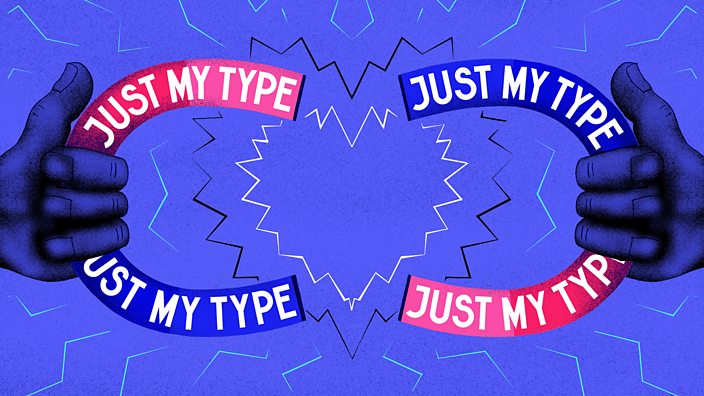 David Weller / BBC Three
David Weller / BBC ThreeThis is surprising. Because without fail, on every occasion when someone has seen fit to tell me I am lucky enough to be considered their type, thanks entirely to whatever quirk in the universe brought my Jamaican father and white-British mother together to create a child, I have not been happy. Nor have I felt complimented. Instead, it’s a statement that’s reduced me to less than the sum of my parts. When someone says “you are my type” meaning “you are mixed-race', all I hear is: “You are interchangeable. You are homogenous. You are replaceable.”
“A lot of people [I’ve dated] feel like by saying they love mixed-heritage girls, it's positive discrimination,” says 24-year-old British-Ghanaian, Ava, when I ask her about her experiences with this particular trend. “But I’ve only ever felt fetishised as a result.”
Others agree.
“I’ve had people say to me ‘Oh you’re exactly their type’ [about boys I’m involved with]”, Anna, 24, recounts. “Then it transpires the person has previously dated or liked another short Indian girl who otherwise looks and acts nothing like me.”
Ruchira, 23, relates a similar experience.
“It was really strange [to be described as someone’s type] because it was meant in a racialised way,” she recalls. “It’s a bizarre thing to feel like someone isn’t really looking at you as an individual but just something that they are into because of your skin tone or some concept that you’re different and exciting.”
And it's a concept which is being explored closely. “In my research, I intentionally break down this idea that there are innate preferences for a particular ethnic group,” says Viren Swami, a professor at Anglia Ruskin University, who studies the impact of ethnicity on romantic attraction.
“Most people live in a culture that promotes particular ethnic groups as being more attractive than others and these are idealised as partners. Even if there are innate preferences, we still have the ability to make decisions about who we date based on knowledge, experience and all kinds of different things.”
Why did I feel comfortable excluding white men from my dating pool?
So why might someone express a preference in favour of a particular group – and think nothing of it?
“Part of this is because it’s being framed as a positive thing,” Swami tells me.
“If I say, for example, that I’ve got a preference for people who look like an owl, wonderful for me, I’m doing something positive by being multicultural and open to other people. But what it actually does is objectify those people because it's basing your choice on the first thing you see. You are saying people are no more or no less than their ethnicity and that’s it.”
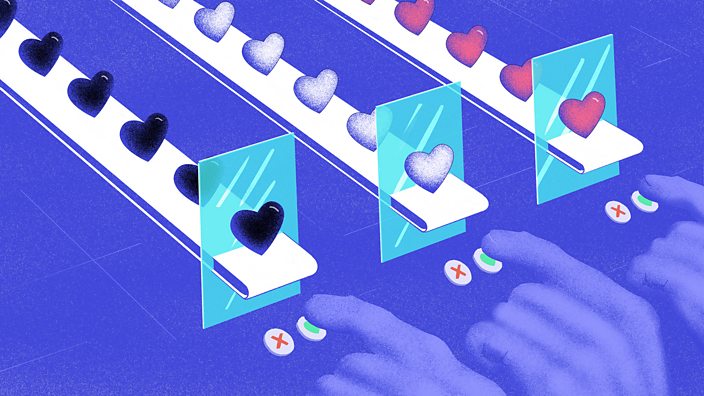 David Weller – BBC Three
David Weller – BBC ThreeBut what about preferences that work against certain ethnicities? It’s something I’m no stranger to. For the last three years when asked what my type is – a question that made me extremely uncomfortable for reasons I couldn’t quite pinpoint at the time – I’ve answered: “I don’t have one,” before adding: “Except – I don’t date white men.”
Why did I feel comfortable excluding white men from my potential dating pool, with a nonchalance I wouldn’t dream of applying to any man from an ethnic minority group?
There is no question that my thinking was prejudiced, something I didn't recognise right up until the moment I fell madly-in-like with a – shock – Caucasian man.
Previously, if quizzed on why I was so happy to cut out a huge swathe of the population without a second thought, as if they weren’t a group made up of millions of autonomous individuals, I would say: “They fetishise me and we have nothing in common.” Except the penchant for ethnic generalisations, of course.
Much better is to make judgements based on who shares your life values, irrespective of their ethnicity
This attitude – assuming that any romantic relationship with a white man wouldn’t work because our differing skin colour means our life experiences would just be too different – is one reason prejudice perpetuates in dating.
“In general people prefer similar others,” says Professor Swami.
You can see it in the way we choose to follow people with similar opinions and experiences on Twitter and Insta. Offline, we tend to think those who look like us are more likely to share our values. Even if that’s not accurate.
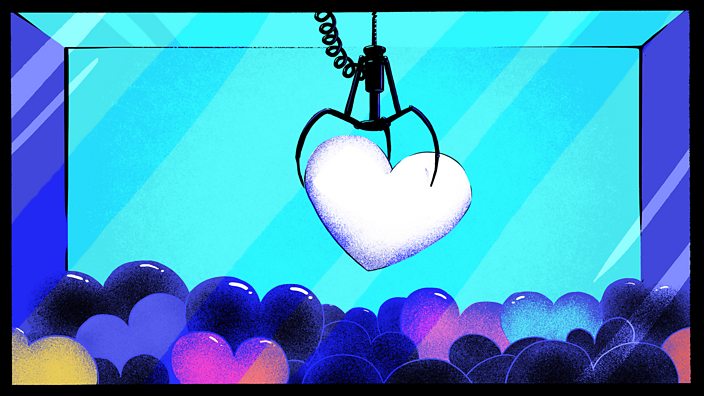 David Weller / BBC Three
David Weller / BBC ThreeAnd this way of picking a partner doesn’t actually work.
“All evidence suggests choosing someone based on ethnicity is relatively weak and doesn’t make for good relationships,” Swami continues.
“Much better is to make judgements based on who shares your life values, irrespective of their ethnicity.”
Which seems obvious but it’s hard to make value judgements when you’ve got nothing to go on except what another person looks like. The explosion of online and app dating has sharpened an ‘aesthetic-first’ approach to romance which encourages us to hold onto our biases – especially those relating to ethnicity.
So what can we do to police our swiping for unconscious prejudice? Well, we’re not going to overcome racism in dating overnight. Just like we’re not going overcome racism in society overnight. One is a reflection of the other. Or perhaps the relationship is symbiotic. Either way, people are going to continue to have preferences. But that doesn’t mean we can’t question them.
I decided to date my way to racial impartiality like he had. And it worked!
It took several years of my friends commenting on it before I would even admit to myself that perhaps I’d fallen victim to the prejudice of type. And writing these words is the first time I’ve publicly copped to any sort of racial bias.
I knew it was wrong. Nevertheless, I persisted, although I never revealed my inner thoughts to anyone I was dating – and that unwillingness to share said everything about how warped my thinking was.
It took a throwaway comment by a man I briefly dated to make me see that my excuses for carrying a type were flimsy. “When you’ve travelled as much as I have,” he said, “You realise types don’t exist.”
I decided to date my way to racial impartiality like he had. And it worked! I started meeting a wider spectrum of interesting, engaging people based on how well we seemed to click personality-wise. The upshot is, dismantling your own ideas surrounding type makes you, I think, a happier, healthier person – who also has lots of sex and more chance of finding love with someone who sees you for who you truly are.
And the next time you’re hit by someone saying they have an ethnic type or that they don't date a certain demographic, start the discussion with one word. Why?
Originally published 9 November 2018.
Moya Lothian-McLean is a writer for Stylist magazine.
Read more:

